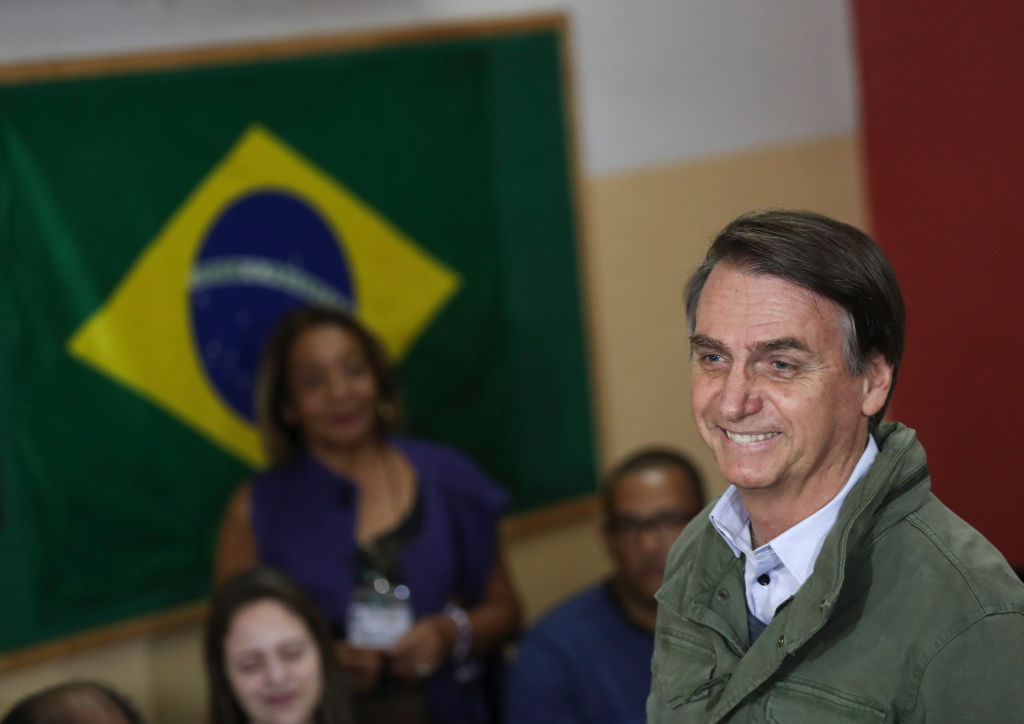
Bolsonaro doesn't want anymore "sex talk" in Brazil
A new campaign in South America´s biggest country looks to promote abstinence rather than safe sex.
Sex, a nirvana for some, a good old enemy for Brazil’s President, Jair Bolsonaro, who wonders why put your tween or teen through the awkward “sex talk” when you can simply avoid it altogether.
Bolsonaro had already expressed, back in 2018, his desire for schools to be “prohibited from speaking about abortion, adolescent pregnancy, AIDS and other sexual matters.” He even threatened teachers with filming what happens in the classrooms so that parents and caretakers know what “teachers,” Bolsonaro air-quoted, are doing.
Today, the far-right administration led by Damares Alves — an evangelical pastor who calls herself “extremely Christian” and serves as Bolsonaro’s Minister of Human Rights, Family, and Women — are ready to launch a new program based on abstinence to “ensure the reduction of teenage pregnancy and delay the average age at which young Brazilians start sexual activity.”
"Do you really need to have sex at the age of 12? Is a 12-year-old girl ready to have her body possessed two or three times a week?" asked Alves, in the context of talking about consensual sex between teenagers.
It’s a prerogative that prompted her to closely consult the evangelical pastors behind the “I Chose to Wait” campaign.
The result is a federal government campaign, the first that South America’s biggest country has ever seen to promote sexual abstinence aimed at all children ages 10-18.
It’s a controversial initiative in a country where 21,000 babies are born to girls younger than 15 years old and 68 babies are born per 1,000 teens aged 15-19.
RELATED CONTENT
Brazil’s national secretary for the Rights of Children and Adolescents, Maurício José Silva Cunha, says the idea is not to stop recommending contraception, but rather to “preserve the human rights of children and adolescents.”
Critics believe the government’s new emphasis on abstinence blurs the line between church and state, and could lead to children making poorly informed decisions about sex that may be detrimental to their health.
The Feminist Network of Gynecologists and Obstetricians issued a statement saying that “preaching abstinence, and failing to provide adequate information on reproductive and sexual health, will not stop teenagers from having sex."
In a country where abortion is illegal — except in the case of rape, or when the woman’s life is at risk — young girls without proper sexual education who become pregnant and seek out an abortion could find themselves facing up to three years in prison.
According to data from the Ministry of Health, between 2011 and 2016, Brazil recorded 4,262 cases of rape against children and adolescents that resulted in pregnancies and births in that period. But the cases actually trial -which is needed to access abortion due to rape, were only 10% from the ones reported to law enforcement.
Not only that, but sexually transmitted diseases are also a fear for activists who, considering the fact that 53,000 people were newly infected with HIV in 2018, wonder how adolescents would be able to prevent them without proper knowledge of contraception and sexually transmitted diseases.










LEAVE A COMMENT: